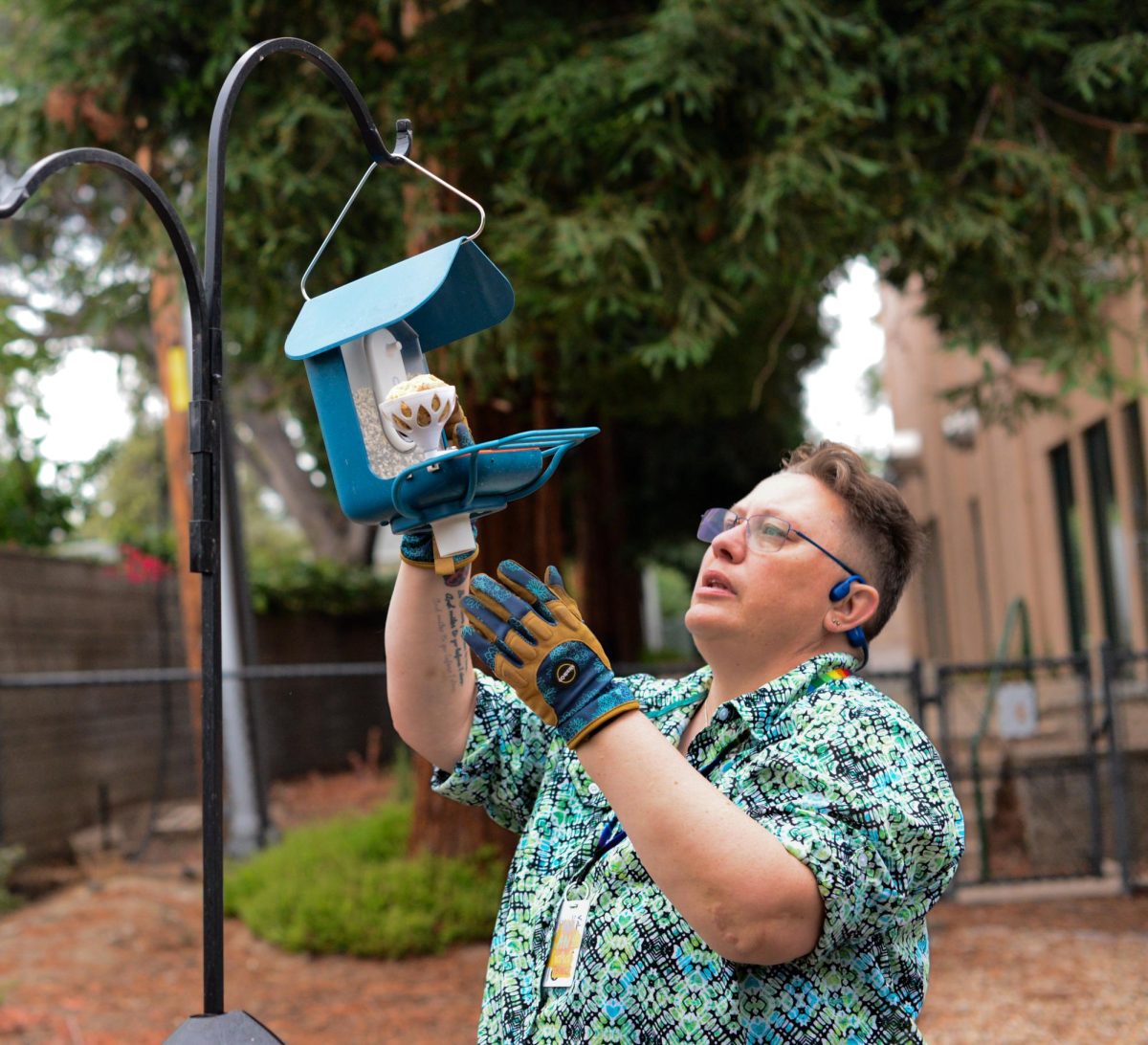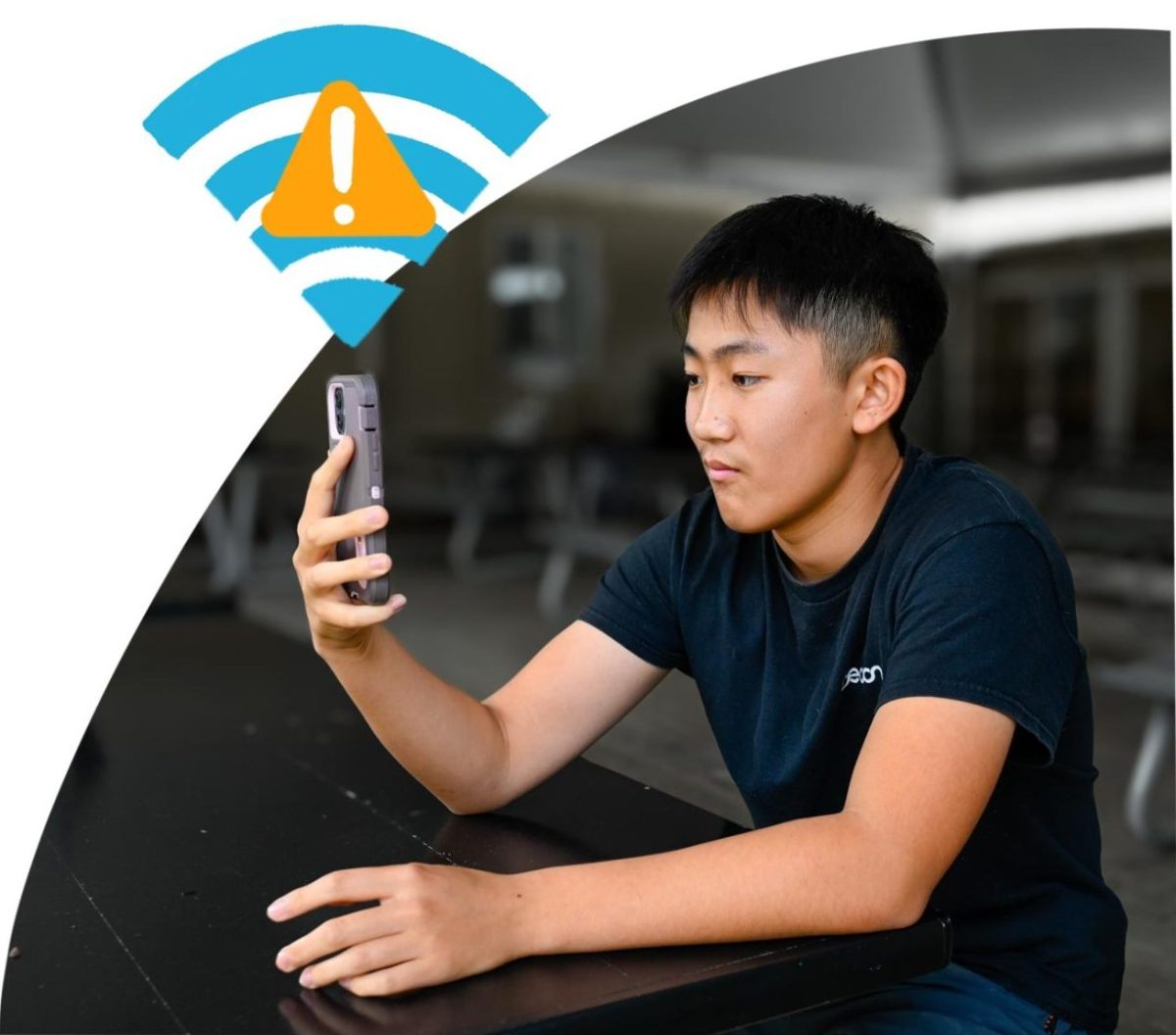Periods affect half of all high school students, and yet stigma around menstruation is a prevailing concern in many high schools, where teens face embarrassment for openly talking about the issue.
“There’s the general worry about other people seeing it if you walk around, you didn’t cover it up enough — just that fear,” senior Shruti Srinivasan said. “The worst part is going to school and having to deal with that and having to get through the cramps during class because you do want to focus as much as possible, but if it becomes intolerable, what can you do?”
Upper school nurse Jennifer Olson treats an average of eight to ten people per day for cramps. She stocks heating pads, pads and tampons as well as painkillers like Tylenol and Advil. Olson believes that better resources for menstrual care can help improve the sense of uneasiness while on your period at school.
“Even [when] having your own products, it can be hard to get things out when you’re in a classroom and around a lot of people,” Olson said. “If you knew that there were good-quality products that were accessible, then you’d feel like you could get them when you needed them. But if there are not comfortable products [in the bathrooms], it can be anxiety-inducing.”
Bathrooms across campus offer pads and tampons in dispensers, but students have observed that the materials are flimsy and inefficient at curbing blood flow.
“Having pads in the first place is already such a privilege, but the pads we have just don’t work very well,” junior Shimeka Sahu said. “The pads are very small and they’re short, so they don’t hold as much blood. Usually, my friends that have heavy flow have to stack two pads on top of each other.”
Sophomore Student Council members Samaara Patil and Nicole Dean proposed an initiative with ASB Treasurer Ananya Pradhan (11) to supply higher-quality pads and tampons in upper school bathrooms.
“We’re trying to see if we would be able to get more store name brands because it would make students’ lives easier,” Samaara said. “What a lot of students do right now is go to the nurse’s office and ask for pads, because she has the brand ones, but that’s inconvenient. If we’re spending money on pads that are already in the restroom, there’s no point in getting them if they’re never used.”
Samaara hopes that improved bathroom accommodations can lessen that public embarrassment; she aims to implement her plan for higher-quality pads by mid-to-late February.
“There’s a bit of awkwardness that often surrounds [periods],” Samaara said. “People don’t want to go to the nurse to ask for a pad. That’s why we want to implement the [new] everyday bathroom dispensers, so we can give people ease when they’re looking for these products.”
Olson advises the community at large to support students on their period.
“It’s hard as it is, so it would be good to have more understanding even from non-female people on campus,” Olson said. “Just know that this is hard for women and be encouraging. Don’t contribute to the embarrassing nature of it.”




![LALC Vice President of External Affairs Raeanne Li (11) explains the International Phonetic Alphabet to attendees. "We decided to have more fun topics this year instead of just talking about the same things every year so our older members can also [enjoy],” Raeanne said.](https://harkeraquila.com/wp-content/uploads/2025/10/DSC_4627-1200x795.jpg)


















![“[Building nerf blasters] became this outlet of creativity for me that hasn't been matched by anything else. The process [of] making a build complete to your desire is such a painstakingly difficult process, but I've had to learn from [the skills needed from] soldering to proper painting. There's so many different options for everything, if you think about it, it exists. The best part is [that] if it doesn't exist, you can build it yourself," Ishaan Parate said.](https://harkeraquila.com/wp-content/uploads/2022/08/DSC_8149-900x604.jpg)




![“When I came into high school, I was ready to be a follower. But DECA was a game changer for me. It helped me overcome my fear of public speaking, and it's played such a major role in who I've become today. To be able to successfully lead a chapter of 150 students, an officer team and be one of the upperclassmen I once really admired is something I'm [really] proud of,” Anvitha Tummala ('21) said.](https://harkeraquila.com/wp-content/uploads/2021/07/Screen-Shot-2021-07-25-at-9.50.05-AM-900x594.png)







![“I think getting up in the morning and having a sense of purpose [is exciting]. I think without a certain amount of drive, life is kind of obsolete and mundane, and I think having that every single day is what makes each day unique and kind of makes life exciting,” Neymika Jain (12) said.](https://harkeraquila.com/wp-content/uploads/2017/06/Screen-Shot-2017-06-03-at-4.54.16-PM.png)








![“My slogan is ‘slow feet, don’t eat, and I’m hungry.’ You need to run fast to get where you are–you aren't going to get those championships if you aren't fast,” Angel Cervantes (12) said. “I want to do well in school on my tests and in track and win championships for my team. I live by that, [and] I can do that anywhere: in the classroom or on the field.”](https://harkeraquila.com/wp-content/uploads/2018/06/DSC5146-900x601.jpg)
![“[Volleyball has] taught me how to fall correctly, and another thing it taught is that you don’t have to be the best at something to be good at it. If you just hit the ball in a smart way, then it still scores points and you’re good at it. You could be a background player and still make a much bigger impact on the team than you would think,” Anya Gert (’20) said.](https://harkeraquila.com/wp-content/uploads/2020/06/AnnaGert_JinTuan_HoHPhotoEdited-600x900.jpeg)

![“I'm not nearly there yet, but [my confidence has] definitely been getting better since I was pretty shy and timid coming into Harker my freshman year. I know that there's a lot of people that are really confident in what they do, and I really admire them. Everyone's so driven and that has really pushed me to kind of try to find my own place in high school and be more confident,” Alyssa Huang (’20) said.](https://harkeraquila.com/wp-content/uploads/2020/06/AlyssaHuang_EmilyChen_HoHPhoto-900x749.jpeg)












